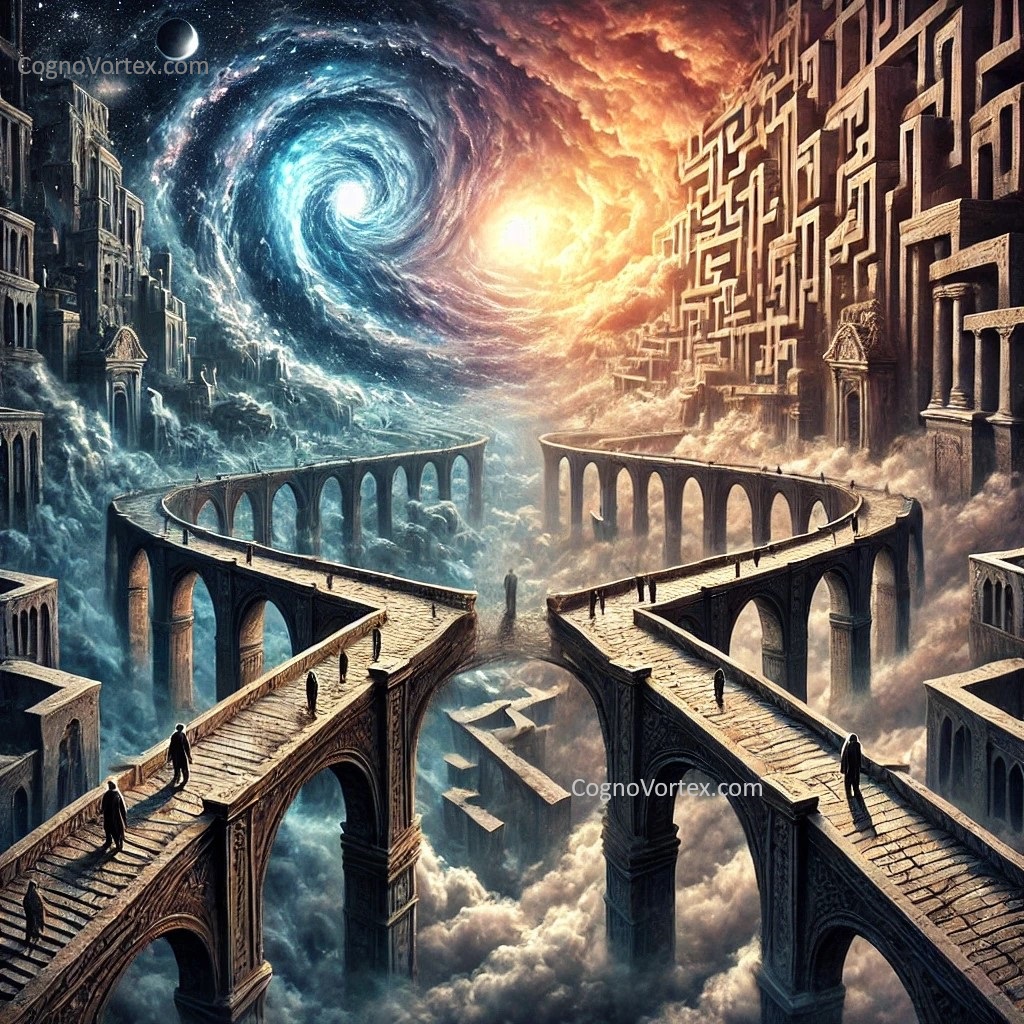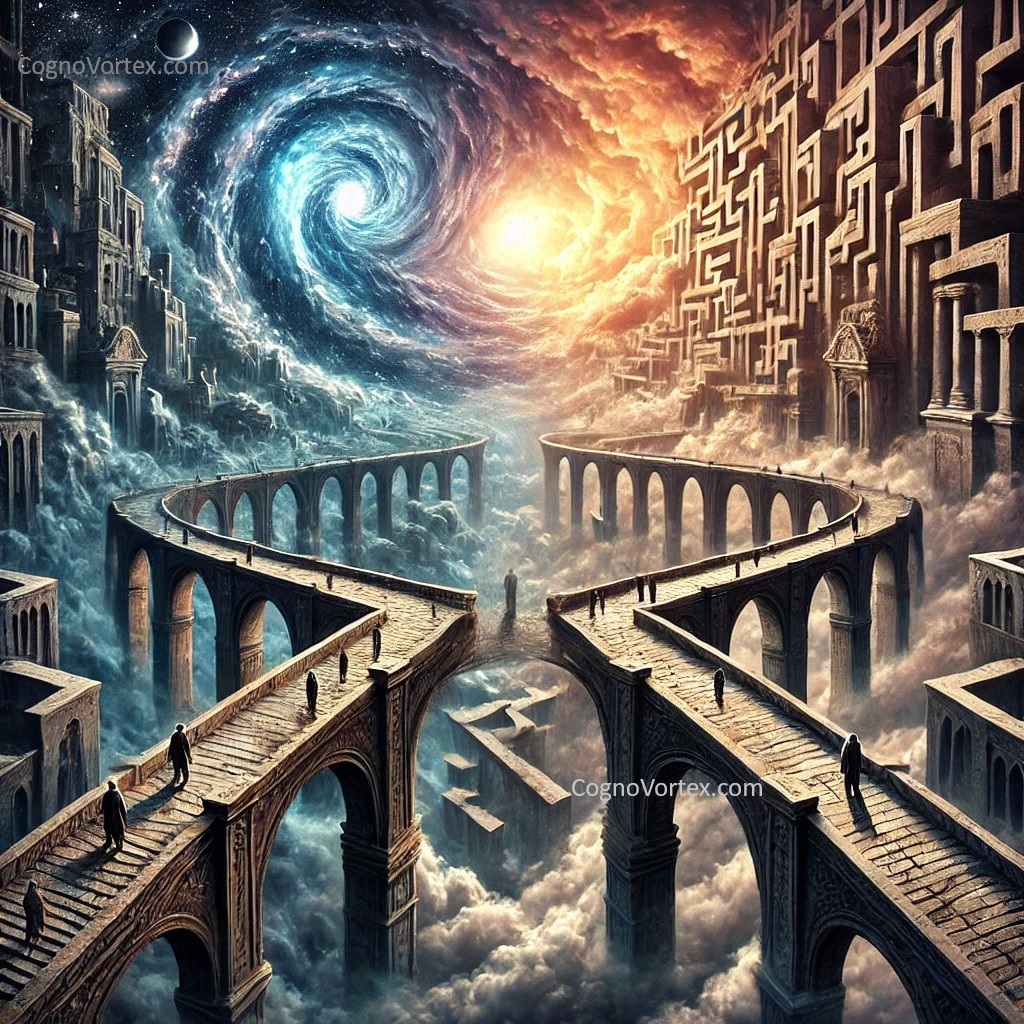In the trials of Job and the world Kafka sketches, suffering appears as a fundamental condition without resolution or even a promise of enlightenment. Job, unwavering and uncompromising in his integrity, faces a cosmic test that seems as arbitrary as it is profound, his endurance framed by a belief in a higher order, even as that order veers into what feels like chaotic torment. In Kafka’s The Trial and The Castle, Josef K. and K. face a different landscape—one of pervasive, impersonal bureaucracy where reason does not prevail, and answers, if they exist, do so only in faceless forms. Yet both Job and Kafka’s protagonists encounter this essential dilemma: When answers dissolve and questions become the only constant, where does the mind find its rest?

The Stoic’s view, one of focusing on inner integrity over external events, can be seen as a bridge between the two. Stoicism doesn’t require a reason for suffering, nor does it demand that trials serve a coherent divine purpose. Instead, Stoicism posits that meaning arises in the steadfastness of one’s response—anchored within the self rather than within an unknowable, shifting external world. In Job’s story, we see the pain of one who wrestles with cosmic indifference; for Kafka’s protagonists, that indifference isn’t cosmic but systemic, woven into the social labyrinth itself. Stoic thought, in this case, does not answer the question of why suffering happens but asserts that the freedom to maintain one’s reason and character stands as the last, most profound answer available.
Suffering Without Purpose: Job’s Divine Absence and Kafka’s Bureaucratic Inertia
Job’s trial feels like a cosmic punchline, as if his integrity were met with a response by an unyielding void. The absurdity of Kafka’s bureaucratic machines, with endless queues and unreadable documentation, offers no less of a void, even if it is bureaucratic and banal rather than divine. In both, there is a lesson about resilience—about whether resilience must take its grounding from the hope for an answer or if it can stand in the absence of answers altogether. Kafka’s characters reveal something darker: that in a world without reason, those who look for cause and resolution may find only an endless chain of empty procedures.
Stoicism as a Bridge: Grounding in Self-Possession
Where Job yearns for divine recognition and Kafka’s characters search for a break in the system, Stoicism’s teachings would urge both to consider the unshakable value of their own agency. For the Stoic, suffering isn’t a barrier to agency but a necessary condition of reality, a fundamental fact against which resilience builds. Instead of seeing suffering as an impersonal punishment or an absurd bureaucratic whim, Stoicism reinterprets suffering as part of life’s inevitable flux, a process to endure rather than question.
For Job, this Stoic lens would mean transcending his need for justification from God, letting go of the plea for his condition to be seen as unjust. Instead, he would find dignity in facing the seeming arbitrariness with unyielding character. For Kafka’s protagonists, Stoicism would mean abandoning the need for an external breakthrough in favor of mastering their reactions to an oppressive and unfathomable bureaucracy. While Job seeks answers from the heavens and Kafka’s characters from the clerks, the Stoic understands that answers are secondary to the self-mastery that arises from facing and surviving the question itself.
The Stoic Paradox: Freedom in Restraint
Here lies the paradox, or perhaps the irony, of Stoic resilience: it requires nothing of the world, neither answers nor relief, to remain intact. Stoicism is that bridge precisely because it seeks no bridge; it is the act of standing firm without the need to cross into a realm of explanation or comfort. Suffering in the Stoic model is a terrain, not an aberration, one where self-possession remains the last agency. To Job’s suffering and to Kafka’s endless absurdities, the Stoic would say that endurance itself carries meaning—that, in reframing the self’s relation to suffering, one discovers a kind of power over it.
Job, Kafka, and the Stoic Bridge reveal the contours of a resilient human agency, one where meaning lies not in answers but in the capacity to hold fast amid an endless field of questions.
